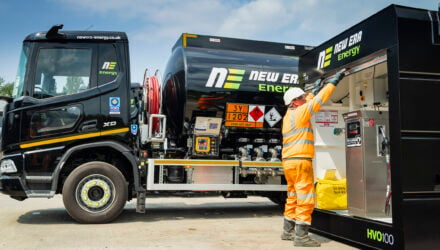 As GDPR (General Data Protection Regulation) has become part and parcel of everyday life, it feels as though cars are set to be next battleground in the debate on the collection and use of personal data. Most of us have no idea what data is collected by our cars and for what purpose. If you have a modern car, almost everything you do in your vehicle today is monitored: where you’ve been driving, which radio station you’ve been listening to along the way. Your car could even record all phone calls, to whom and for how long you’ve been talking. And when you sell your car, all this information will still be available to the manufacturer. So far, so Orwellian. But the smart car revolution has many advantages.
As GDPR (General Data Protection Regulation) has become part and parcel of everyday life, it feels as though cars are set to be next battleground in the debate on the collection and use of personal data. Most of us have no idea what data is collected by our cars and for what purpose. If you have a modern car, almost everything you do in your vehicle today is monitored: where you’ve been driving, which radio station you’ve been listening to along the way. Your car could even record all phone calls, to whom and for how long you’ve been talking. And when you sell your car, all this information will still be available to the manufacturer. So far, so Orwellian. But the smart car revolution has many advantages.
Take electric vehicles. Many of our major corporate customers would like to switch to the latest emission-free technology. But their fleet is made up of thousands of vehicles across several countries, who all have different needs.

Smart cars can help speed up the transition by measuring how often each vehicle is used in the fleet and how far it is driven. This data can then be used to draw up a smart transition plan for the fleet. In-car data can also be used to predict maintenance problems and even tackle congestion problems by providing governments with more accurate information. In our view, it is not so much a question of collecting data as such, but rather of who manages the data and how drivers can be helped to make informed decisions about exactly what data they share and with whom. But how do we go about implementing this data collection?
First of all, everyone in the industry must make it much easier for drivers to understand in advance what data is being collected and for what purpose. It is madness that, in times of GDPR, your car can still collect virtually all the data it wants. Drivers need to be much better able to give informed consent or not to collect data from their vehicles. That doesn’t have to be difficult. After all, every time you download an app, you have the choice whether or not to agree that the data of the app is shared with third parties.
Secondly, the data of these smart vehicles must not end up in a black box that is controlled solely by the vehicle manufacturer. It would be better if the data were instead sent to an intermediary platform, a ‘neutral server’. These servers would then be operated and financed not by the manufacturers but by an independent party. In addition, they only provide aggregated data insights, thus protecting the privacy of individual drivers. Using a neutral server would allow motorists to be able to decide for themselves what data they want to share and with whom, such as the manufacturer, the maintenance engineer or another service provider.
In a neutral server, individual data can be combined anonymously and thus also serve a social interest. Local authorities could, for example, use car data to find out how to tackle the congestion problem in their cities or work out how to make so-called ‘black spots’ safer. The condition is that the neutral server is independent, supervised and guarantees everyone’s privacy.
Politicians and administrators must be better informed about data and privacy issues. Almost all companies become technology companies in one way or another. This means incorporating data and privacy considerations into our decision-making processes, just as we take health and safety into account when we build a new showroom. Without rapid action by all those involved in the automotive sector: manufacturers, leasing companies, regulators and motorists, we run the risk of moving towards the next major car scandal, with smart cars that are seen as too smart for their own good. That would be at the expense of a cleaner, safer and less congested mobility system.
Author: Chief Digital Officer, Michel Alsemgeest, LeasePlan






